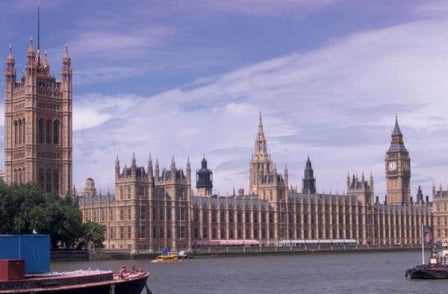
The newspaper and magazine industry is on a collision course with the Government after condemning proposals on press regulation which could “fatally undermine freedom of expression”.
A steering group representing the Newspaper Publishers Association, Newspaper Society, Scottish Newspaper Society and PPA said that it was “deeply disappointed” by the decision of the Privy Council to reject the Royal Charter on press regulation submitted by publishers.
The Privy Council said the publishers’ plan would see the industry exert too much control over the Recognition Panel which will licence any future regulator.
Instead the Government has set a deadline of 30 October to agree changes to a Parliament-backed Royal Charter on press regulation which will be underpinned by statute and include a compulsory libel claims arbitration service. It is expected to publish a final wording of its Royal Charter by the end of this week for ratification by the Privy Council at the end of this month.
The industry steering group claimed publishers will have no opportunity to take part in discussions around changes to Parliament’s press regulation plan.
It said: “We are deeply disappointed that the Privy Council sub-committee has rejected our Charter proposal which set out criteria for tough and independent self-regulation with the support of virtually all of the newspaper and magazine industry.
“In his report, Lord Justice Leveson said: ‘What is required is independent self-regulation. By far the best solution to press standards would be a body, established and organised by the industry which would provide genuinely independent and effective regulation of its members…’
“It is impossible to see how a Royal Charter that has been written by politicians and the Hacked Off lobby group and is to be imposed by politicians could possibly meet Lord Justice Leveson’s recommendation.
“Leveson himself did not propose a Royal Charter and he rejected the possibility of a recognition body established by Parliament or the Government saying: ‘… one of the fundamental requirements for the regulatory body is independence from the Government. Any Parliamentary process would be likely to be perceived by the industry, and possibly the public, as Government interference in the independence of the press.’
“This proposed Royal Charter has already been universally rejected by the industry and it is even more regrettable that the industry will have no opportunity to take part in the discussions between the political parties over possible amendments.
“The Privy Council make it very clear that Royal Charter proposals are unlikely to succeed if they are the subject of controversy. Nothing could be more controversial than a Royal Charter imposed by politicians on an industry which is wholly opposed to it and which would fatally undermine freedom of expression.”
Parliament’s Royal Charter seeks to control press regulation by setting out the criteria by which a press regulator can be approved by an official Recognition Panel.
Without official recognition, members of a press regulator would be at risk of exemplary damages in libel and privacy actions under a provision in the Crime and Courts Bill 2013. Without this cover, there would be less incentive for publishers to sign up to a system of regulation which is expected to be much more expensive to fund than the current Press Complaints Commission.
Most UK publishers are understood to be on the brink of signing up to a new regulator called the Independent Press Standards Organisation which does not, at present, comply with the blueprint set out in Parliament’s Royal Charter.
The Guardian (which was the only major national newspaper publisher not to support the industry Royal Charter) said in a statement that it believes the gap between the industry and Parliament on press regulation was "bridgeable".
Email pged@pressgazette.co.uk to point out mistakes, provide story tips or send in a letter for publication on our "Letters Page" blog
